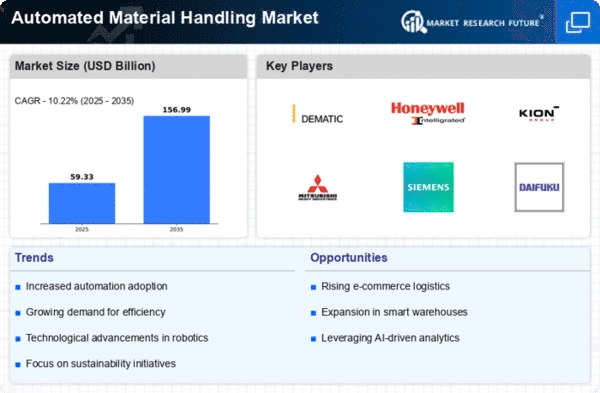Market Analysis
In-depth Analysis of Automated Material Handling Market Industry Landscape
The industry’s evolving trends on how AMH industry develops are continually influenced by changes taking place within it. For instance today there is an increasing emphasis on efficiency and productivity across multiple industries thereby influencing this industry. Companies always look for new ways of doing things that would increase efficiency while reducing manual labor in which case many believe machines should handle materials instead of human beings. Optimization continues driving demand for automated solutions leading to development of AMH.
Equally important, technology has played a major role in shaping the nature of AMH market. Thus, the contemporary technologies such as AI and IOT sensors have enabled the production of more complex and smart material handling systems which incorporate robots. This has made it possible for automated systems to perform multiple tasks at one time with much higher precision, flexibility and real-time decision making in various sectors.
Furthermore, another driver of AMH industry worldwide is a shift from traditional shopping towards e-commerce. The fact that there has been a rapid increase in online sales volumes implies that quick and effective materials handling solutions are needed. With warehouses and distribution centers under increased pressure to process a greater number of products faster yet accurately; they have no choice but to integrate automation. The COVID-19 pandemic and other worldwide issues show that supply networks must be flexible and robust. Because they can swiftly adjust to market changes, disruptions, and unpredictability, automated material handling systems are becoming more popular. Businesses may think their supply chain will continue work if anything goes wrong. In the future, stronger supply networks will influence the AMH sector.
Several emerging environmental sustainability concerns are impacting many of the market dynamics. The move towards green material handling solutions has started becoming a necessity as companies put more emphasis on sustainability. Logistics operations can be optimized for reduced environmental impacts through energy efficiency, waste reduction, and automation technology adoption. As companies begin factoring in ecological issues while making decisions, businesses dealing in green and sustainable material handling solutions may gain competitive advantages in the market.


















Leave a Comment